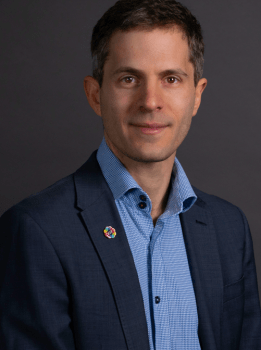An advisory council has been established to consult the NSW government on LGBTIQ+ issues.
Its 16 members – representing First Nations people, people living with a disability, the trans community, and faith groups, among others – were selected based on their experiences and expertise.

Describing the council as “an important step forward”, co-chair Dr Justin Koonin – president of ACON – told Government News the body will be working toward developing “an integrated whole of government strategy” to addressing LBTIQ+ issues.
“There have been pieces of work across many government institutions and departments, but what we’re really looking for is an integrated approach that is consistent across departments,” Koonin said.
Collaborating across agencies – including health, education, housing and transport – the council’s aim is to “drive a more inclusive and equitable NSW”, Penny Sharpe – leader of the government in the Legislative Council – said.
The establishment of the advisory council follows a series of reforms by the NSW government including the banning of LGBTIQ+ conversion practices in March.
In June, premier Chris Minns formally apologised to LGBTIQ+ people convicted under discriminatory laws that criminalised homosexual acts.
In September, the NSW government supported all 19 recommendations delivered by a special commission of inquiry into historic LGBTIQ+ hate crimes, which examined the unsolved deaths of gay men in Sydney in the 1980s and ’90s.
And earlier this month, the government supported the amended Equality Bill which passed parliament. The bill allows transgender people to change their birth certificates without surgery and makes outing an LGBTIQ+ person an offence.
While acknowledging that the LGBTIQ+ community has made “incredible progress”, Koonin told GN: “That doesn’t mean we have social equality and that doesn’t mean that discrimination doesn’t exist. It’s important to remember that the progress we’ve enjoyed over the past several decades have not been uniform.”
There remains, said Koonin, a question of equity. “How do we make sure that the progress is shared equally. There are parts of our community that still face very significant issues of discrimination, and they need to be addressed.”
Koonin is optimistic that more progress will be made “but we also need to be realistic that deep cultural change is not easy – and if it was easy, it would’ve happened already.”





Leave a Reply